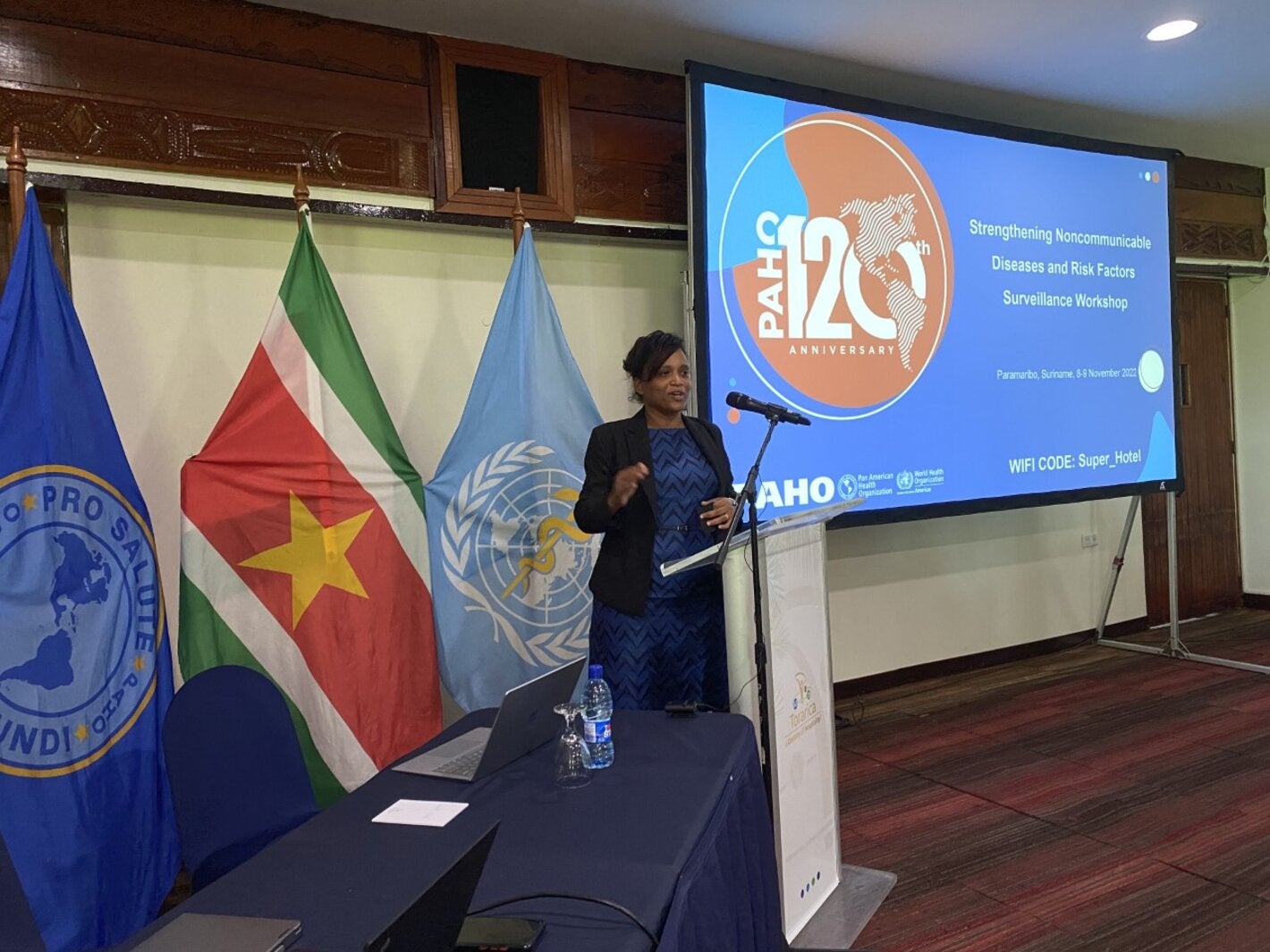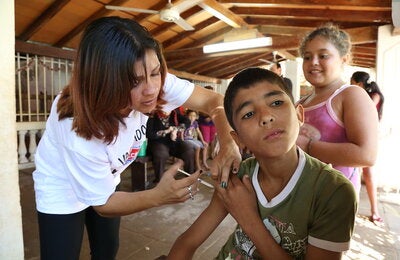
PAHO/WHO Suriname Technical Officer Dr. Wendy Emanuelson-Telgt addressed the participants during the 2-day workshop
Suriname, November 10, 2022 (PAHO) - In response to the growing burden of non-communicable diseases (NCDs) and their risk factors (RFs), the Ministry of Health (MoH), and PAHO/WHO Suriname organized a 2-day interactive workshop for healthcare providers and policymakers from in Suriname.
The purpose of this workshop was to strengthen Suriname’s capacity to conduct surveillance on NCDs/RFs by assessing and building-up on key NCDs/RFs sources of information to better monitor policies and programs that are currently in place. The workshop was facilitated with presentations and guidance from PAHO headquarters colleagues, PAHO Advisor on NCD Surveillance, Prevention and Control, Roberta Caixeta, and PAHO Technical Officer on Noncommunicable Diseases Analytics, Dolores Ondarsuhu.
Furthermore, this workshop aimed to assess the national capacity for NCDs and RFs surveillance by identifying processes and strategies for improvement in the context of the commitments made by Suriname at the global, regional, and national levels.
To fulfill this general objective, the following specific objectives were focused on:
- Reviewing and mapping the national NCD surveillance capacity.
- Reviewing the global and regional commitments on NCDs and its monitoring frameworks (targets and indicators).
- Identifying gaps and priorities to strengthen the national surveillance system.
- Developing work plans to build-up on the national surveillance system to monitor and evaluate the national NCD response.
The PAHO/WHO Representative Dr. Karen Lewis-Bell welcomed all participants as she mentioned
“PAHO applauds the commitment of the Ministry of Health in Suriname to strengthen the NCD response of which monitoring and evaluation of progress is acritical part. It is therefore our pleasure to support this workshop with the purpose of strengthening the NCD surveillance in Suriname, considering that surveillance is an essential public health function.
A good system will allow for better surveillance activities on NCD risk factors to better monitor policies and programs and respond to global and regional commitments”.
In order to successfully monitor NCDs and their RFs, it requires a surveillance system comprised of at least four sources of information: civil registration and vital statistics (mainly mortality data), population-based surveys such as STEPS, registries, and health care information systems. Due to the specificity and technical content of the workshop, professionals in this specific field and scope of work were invited to participate. These participants included:NCD/RF focal point(s) from the MoH
- Epidemiologist(s) responsible for NCD surveillance at the MoH
- Population-based surveys expert(s) from the National Statistics Office
- Professional(s) in charge of the health information system • Professional(s) responsible for mortality data
These professionals participated in a series of presentations, and interactive exercises in order to share their experiences with each other and also explore possible collaborations. The focus was on assessing the National NCD/RF surveillance capacity, completing a matrix with the NCD/RF key indicators to measure progress, and a work plan to strengthen the national surveillance capacity highlighting the bottlenecks and the priorities.
The 2-day workshop concluded with the presentation of the STEPS implementation plan that was developed during the workshop. This will serve as a blueprint for the next steps along with strengthening policymaking.



